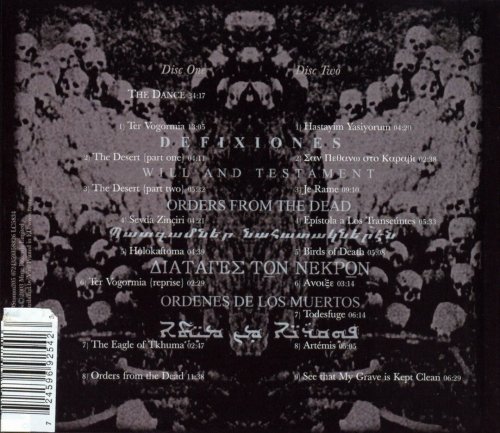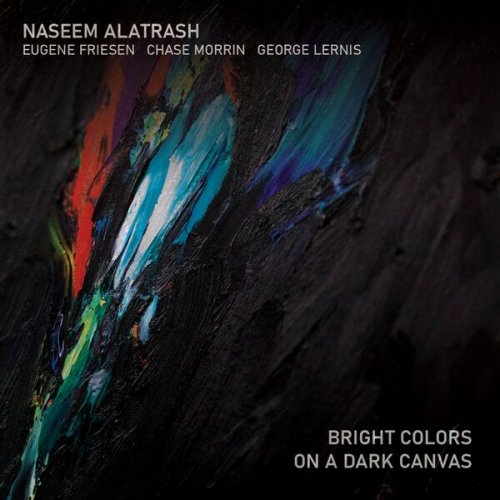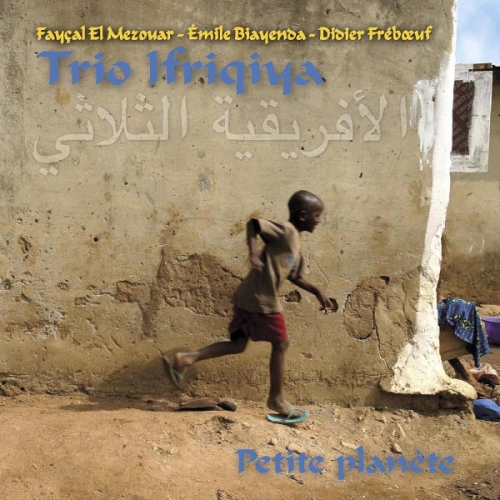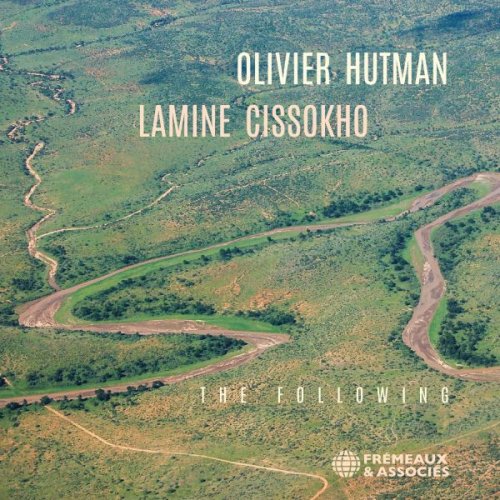Diamanda Galás - Defixiones, Will And Testament (2003) CD-Rip

Artist: Diamanda Galás
Title: Defixiones, Will And Testament
Year Of Release: 2003
Label: Mute
Genre: Avant-Garde, Modern Classical
Quality: FLAC (image+.cue,log,scans)
Total Time: 01:36:26
Total Size: 530 Mb
WebSite: Album Preview
Tracklist: Title: Defixiones, Will And Testament
Year Of Release: 2003
Label: Mute
Genre: Avant-Garde, Modern Classical
Quality: FLAC (image+.cue,log,scans)
Total Time: 01:36:26
Total Size: 530 Mb
WebSite: Album Preview
CD 1:
01. The Dance: Ter Vogormia
02. The Dance: The Desert, Pt. 1
03. The Dance: The Desert, Pt. 2
04. The Dance: Sevda Zinçiri
05. The Dance: Holokaftoma
06. The Dance: Ter Vogormia (Reprise)
07. The Eagle Of Tkhuma
08. Orders From The Dead
CD 2:
01. Hastayım Yaşıyorum
02. Σαν Πεθάνω Στο Καράβι
03. Je Rame
04. Epístola a Los Transeúntes
05. Birds Of Death
06. Ανοιξε
07. Todesfuge
08. Artémis
09. See That My Grave Is Kept Clean
On November 11, 2003, Diamanda Galás released two albums, ending a five-year recording hiatus with a bang. Both are solo live recordings and present two very different sides of her. La Serpenta Canta showcased her song-based material (mostly blues). Defixiones: Will and Testament, Orders From the Dead is more typical of her operatic works of the 1990s. The album revolves around the Armenian, Assyrian, and Greek genocides carried out by Turkey between 1914 and 1923. Galás has chosen poems and texts in Greek, Armenian, Spanish, French, and Hebrew that express the kind of anger, sorrow, and despair these people probably went through (some texts, like Gérard de Nerval's "Artémis," have no historic relation to the events, but foray into psychologicaly related topics). The music draws from various sources of sacred music (Greek Orthodox, Armenian, and Jewish, in particular) to form a hypnotic ceremonial. Galás is a powerful pianist, but her voice dominates throughout, as usual. The album begins with the 34-minute "The Dance," sung a cappella for the most part, except for a discreet drone. Her vocal prowess articulates human emotions in a way that propels them to an epic level, even though the performance is less extreme than some of her most riveting works from previous decades (Plague Mass, for instance). Her vocal range remains highly impressive, but she doesn't aim at frightening and shocking anymore. That said, this relative restraint makes the material all the more moving. The album ends with a rendition of the blues standard "See That My Grave Is Kept Clean," also interpreted on La Serpenta Canta.






![Roberta Flack - Roberta Flack (2026 Remaster) [Hi-Res] Roberta Flack - Roberta Flack (2026 Remaster) [Hi-Res]](https://www.dibpic.com/uploads/posts/2026-02/1772098000_cover.png)
![Fabiano do Nascimento - Vila (2026) [Hi-Res] Fabiano do Nascimento - Vila (2026) [Hi-Res]](https://img.israbox.com/img/2026-02/26/o4t38f6qf24pvc3bqzanbhsz3.jpg)

